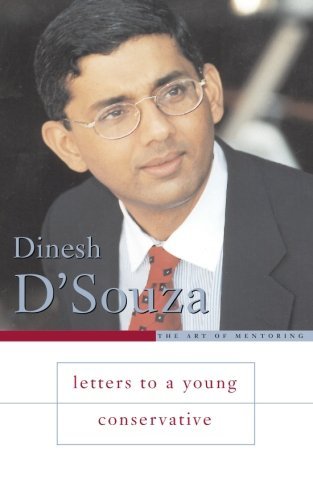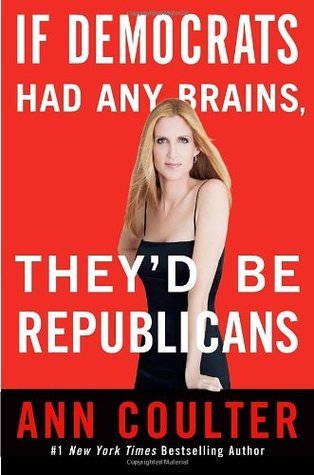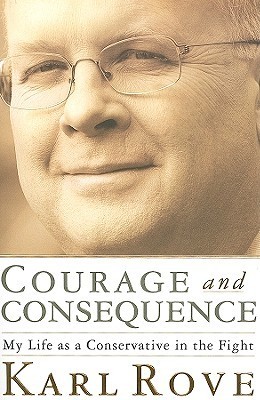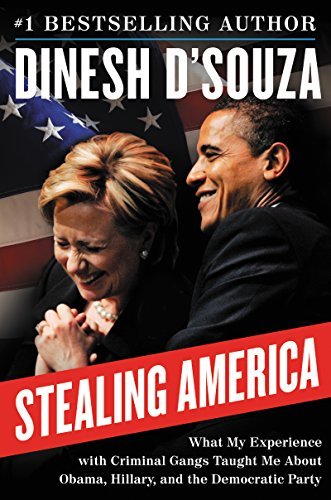
Letters to a Young Conservative
Book Description
Unlock the secrets of a world where ideas clash and convictions ignite. In "Letters to a Young Conservative," Dinesh D'Souza delivers a powerful manifesto that challenges the status quo with razor-sharp insights and fearless arguments. Each letter serves as a beacon, illuminating the urgency of defending liberty, individualism, and traditional values in an age rife with confusion and chaos. With passionate prose and unflinching resolve, D'Souza invites readers to embrace their beliefs and confront the cultural battlefield head-on. Are you ready to stand firm and make your voice heard in a world desperate for clarity?
Quick Book Summary
"Letters to a Young Conservative" by Dinesh D'Souza unfolds as a series of engaging and provocative letters responding to central political and philosophical questions. D'Souza addresses a hypothetical young student, offering guidance on navigating the cultural and ideological battlegrounds of modern society. He advocates for the importance of conservatism, examining its foundational principles such as individual liberty, tradition, and skepticism of government power. D'Souza contrasts conservative thought with progressive ideologies, highlighting the perceived flaws and dangers of liberalism. Throughout, he encourages readers to be unapologetic and articulate in their beliefs, providing intellectual tools and arguments for defending conservatism in academia, media, and everyday life. The book serves as both an introduction and a call to action for young conservatives, seeking to embolden them in times of widespread cultural and political conflict.
Summary of Key Ideas
Table of Contents
Defending Individual Liberty and Limited Government
D'Souza opens his book by laying the groundwork for the conservative worldview, stressing the enduring importance of individual liberty and skeptical attitudes toward concentrated government power. He argues that the freedoms embedded within the American tradition are not accidental but the product of a conscious philosophical heritage worth defending. D'Souza asserts that liberty and responsibility are deeply intertwined and encourages young conservatives to value personal autonomy while recognizing the necessity of social order.
The Role of Tradition and Moral Values
A central theme of the work is the importance of tradition and moral values in maintaining a healthy society. D'Souza posits that customs, religious principles, and cultural habits create the social glue that binds communities together. He warns against the tendency to discard traditional values in pursuit of utopian ideals, arguing that such efforts often lead to unintended negative consequences. Instead, he advises honoring the wisdom of previous generations, suggesting that societal stability relies on respect for proven institutions and practices.
Critique of Progressive Ideology and Political Correctness
D'Souza spends considerable energy critiquing progressive ideology, particularly what he perceives as the excesses of multiculturalism, political correctness, and the expansion of state authority. He claims that modern liberalism tends to undermine individual achievement, promote group identity over personal merit, and use government mechanisms to engineer social change. D'Souza warns that this trajectory threatens personal freedom and undermines the social fabric, urging vigilance against such trends.
Navigating Academia and Cultural Institutions
The book also provides practical advice for conservatives navigating academia and other cultural institutions, which D'Souza characterizes as largely hostile to conservative thought. He shares strategies for engaging in respectful debate, defending one's beliefs without resorting to dogma, and effectively responding to critique. D'Souza encourages intellectual curiosity and resilience, insisting that young conservatives equip themselves with rigorous arguments and a willingness to challenge prevailing orthodoxies.
Articulating and Defending Conservative Arguments
Throughout his letters, D'Souza emphasizes the necessity for conservatives to articulate and defend their views with passion and reason. He provides rhetorical tools and examples, urging readers to master the philosophical roots of conservatism and actively participate in public discourse. By conveying confidence in their convictions and engaging thoughtfully with opponents, young conservatives can help shape the intellectual climate and ensure the survival of their ideals in an environment often resistant to their principles.
Download This Summary
Get a free PDF of this summary instantly — no email required.





